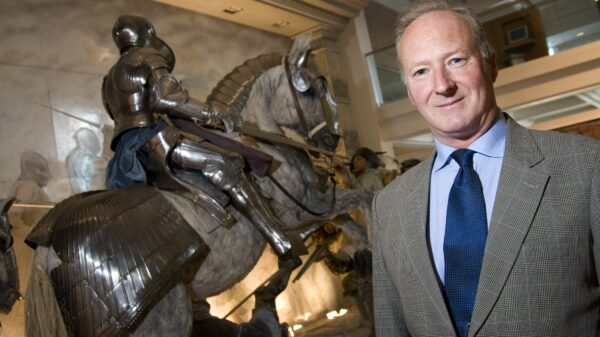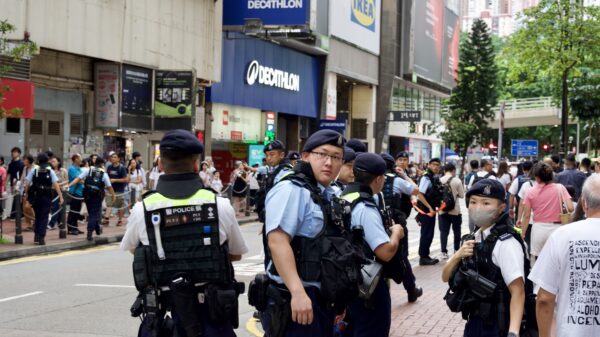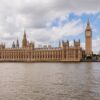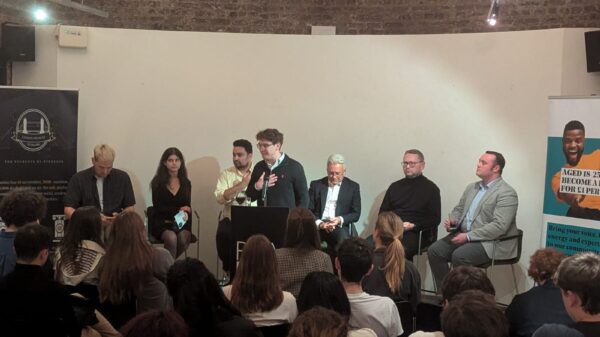King’s student and KCL Conservative Association President Isaac Farnbank is standing for the Conservative nomination for the Isle of Wight’s new, second constituency, Isle of Wight East. News Editors Emma Fallside and Justine Noble sat down with Farnbank to find out more about what inspired him to run and the process.
Roar: What is your position at King’s, academically and in terms of extracurriculars?
Farnbank: I’m Isaac. I’m a second year politics student here at King’s, originally from the Isle of Wight which is where I was born and raised. In terms of extracurricular activities I am President of KCL Tories. At the start of the beginning of last year I got involved with a bit of hockey but dropped out because of time pressures.
R: So what inspired you to run for parliamentary membership?
F: On a local level, I’ve been on the island for 19 years. I’ve been involved in politics over there as well, and you see a lot growing up and going to school somewhere. I’ve always been interested in why things were happening and I haven’t always been satisfied with the answers that I was given. I have quite an enquiring mind. I’m a person who- if I see something, I want to do something about it.
We (the island) are normally part of the southeast which is the most prosperous part of the UK. But, the Isle of Wight has some of the worst educational outcomes, some of the worst areas of deprivation and just no economic diversity. I’d like to do something about it so that’s why I’m running.
R: Can you elaborate on what sort of political involvement you’ve had prior?
F: I started getting involved in politics in probably my mid-teens. I got involved in the local Conservative Association. I relaunched the Young Conservatives over there [on the island], and subsequently got elected chairman. I’ve also had various involvement with Bob Seely who is the current MP for the whole of the island, prior to the boundary changes.
R: Could you walk us through the process of what it’s like to run for candidacy?
F: So this is from the Conservative Party angle, that’s the process which I am familiar with.
Essentially, if you decide that you want to become a candidate, then the first step is to express an interest. There are various hurdles to jump, which isn’t really that different from any other job interview: your background, your relevant skills, why you want to do it. Then you have to find references, and then there’s various assessments you have to go through before you become an approved candidate.
Once you’re an approved candidate then the local parties which need representatives – it might be because an MP is resigning or because there’s a new seat – they then inform the central office in London of any vacancies and approved candidates are informed of that. So you can already tell that it’s quite a long process.
Once you apply to a seat locally, then you are short-listed. If you are short-listed then you are asked to come for an interview with a smaller group from the entire association, usually the people who are most involved in the association, and that group [of candidates] is whittled down to perhaps two, three, four, even six. They are then put to the members in their constituency who then select a candidate.
Once you are selected, you fight in the general election, and then you’re finally an MP if you’ve done everything right.
R: Is there any age restriction on who can run?
F: No, obviously you have to be eighteen to stand for election, but that’s the same for any office in this country. It’s not like other countries where there are minimum ages for the different offices you stand for.
R: Do candidates have a pretty close relationship with sitting MPs?
F: I mean yeah I think so, I can’t really speak for other people. I should stress that Bob hasn’t taken a public view on who he’s endorsing, he will remain above that I’m sure, but I think it’s useful, particularly in a situation like this where the constituency is currently one, and it’s the largest constituency in the country- that’s one of the reasons why it’s being split in two.
I think if you want to be someone who effectively succeeds that person for that part of the island you should of course have discourse and you should of course work closely together. Ultimately whoever is selected, they’re going to have to work together for the good of the island so you might as well start that relationship now if not earlier.
R: So turning to the more specific action plans which you are running on: the five areas for improvement which you outline on your website are Island Economy, Connectivity, Education, Health, and Environment and Housing. What made you focus on these in particular?
F: I think those are the major issues facing the island. I would never be able to write a platform which would cover every single issue – I don’t think people would expect me to either. What I’ve done is set out concepts in the areas which can unlock progress in basically every other sphere, particularly connectivity.
This is one of the reasons why we are behind the rest of the Southeast: it’s because that stretch of water [between the Isle of Wight and mainland England] is the most expensive stretch of water in the developed world, which is crazy. That needs to change, and the only way to do that is to bring new solutions to the table.
One of my rivals for candidacy has done great work petitioning the ferry companies to improve their service, and that’s had some limited success which is great, and I applaud her for it, but actually we’re not seeing any policy debate on how we can change this moving forward.
R: Most of what you’ve outlined in your plan seems to align pretty well with your own party and the party’s manifesto. Would you say that most of your own political goals are quite specific to your party, or do you think the island as its own territory changes the politics?
F: It does. I’m not so much of a partisan that if someone from the opposite side of the fence said, “let’s work together to get something done for the island”, then that’s my primary focus. Of course I’m a member of the Conservative party, I want to be a Conservative representative, I align myself with the party. But I’m doing this for the island. Yes the vision aligns with Conservative principles, which aligns with the party now and then, but the island is the main priority.
R: Would you say that your position as head of KCL Tories has helped prepare you for this role?
F: Yeah potentially, I think so. Of course you have to work with a whole load of people in that position, you get to meet and network with a number of Tory politicians and people in those fields which is helpful for general conversational advice. And the association is quite diverse in itself so you’re dealing with all kinds of people in all kinds of issues with different perspectives. So yeah I definitely think it has helped to an extent. I see it as logically distinct from what I’m doing, but it certainly helps.
R: Have you always known that you want to go into politics?
F: I’ve always known that I wanted to be part of the process in some way, you know you have this internal process when you think through, “well how’s the best way to do this?” and I thought that the best way to lead change, particularly locally, is at a parliamentary level. But standing at this stage is as much about the island as opposed to myself.
There is a school of thought that if I was in this for myself I wouldn’t be standing at this stage and I would be waiting a bit, but because I want to focus the debate on the island and I want to get the focus onto policy and what we can achieve – what can be achieved for the island – is why I’ve thrown my hat into the ring at this stage.
R: Would you say that being a young person in politics differentiates your experience in running right now from that of someone who is older?
F: Yeah absolutely – I think I bring a completely different approach. I’m a student of politics, I’m interested in politics. I’ve observed some six years now of incredible happenings after Brexit, and Covid and the war in Ukraine – everything like that – but also locally.
I bring a local perspective – I grew up on the island, I’ve lived there for most of my life so I have a very real appreciation of its issues but from perhaps a slightly different perspective of someone who wants to bring new ideas to the table.
I am myself adjusting how I look at things and how I deal with things. And I do see this [youth] as a strength, there are people who view it as a weakness and who think it’s potentially a drawback in the campaign. To an extent it is, but to my mind I see it as an opportunity. If we’re going to do something new, if we’re gonna transform our aims and our aspirations then let’s start with the candidate.
R: When talking about individual responsibility, given the fact that you are doing something quite difficult – becoming an MP to make change – what would you tell people who want to make a difference but want to do something other than becoming an MP?
F: I think it’s very important that we don’t begin to see standing for parliament as somehow above other pursuits. I think if you are going to stand for parliament you need to bring some solutions to the table and you cannot rely on things being done outside of parliament. But that is not at all to say that figures outside of parliament are not as laudable. Potentially, people can achieve things without being an MP, arguably more than some MPs achieve. So the message is very much make the change at whatever level you’re comfortable with.
R: Finally, is there anything you’d like our readers to take away from your experience, something to say to other students looking to enter politics?
F: I think the key is if you’re not happy with how things are then ask yourself what to do about it. If you want change don’t doubt yourself, certainly critically evaluate what you want to do but if you feel that it’s the right thing to do and you want to make change then get on and do it.

















